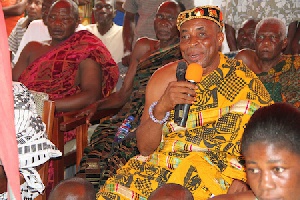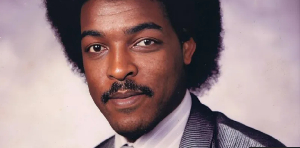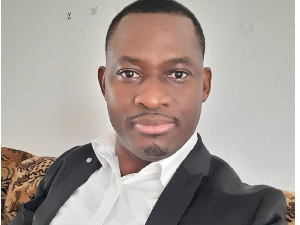The Ankobeahene of Nkonya Ahenkro Traditional Area, Nana Ampem Darko III has asked the Government, police and security authorities to separate the undying age-old land dispute between some people from the two communities, from violent activities perpetrated by residents in the area using the land conflict as a disguise.
People from both sides have been killed in recurrent skirmishes, which were allegedly linked to the land dispute.
However, Nana Ampem Darko said at a recent forum in the Volta region between the traditional leaders and Vice President Kwesi Amissah-Arthur that: “All this atrocities that are happening is nowhere near the disputed land…”
“If we say we are fighting, the land is there and nobody is fighting on it... So I’ll plead with the powers-that-be, put the land problem as one chapter and look at the criminality and the atrocities that is happening on the other side,” Nana Ampem Darko urged.
“My farm was destroyed, my animals taken…it’s about five kilometres away from the disputed land…so inasmuch as there is land problem, I want to draw the attention of the authorities-that-be that look into the various attacks…and ask what is the problem?”
The Regional Security Council has placed a 14-hour curfew on the two communities and their surrounding areas as part of measures toward containing the intermittent fighting.
Meanwhile Security Analyst Emmanuel Bombande, who is the Executive Director of the West Africa Network for Peace Building (WANEP) recently Paa Kwesi Asare on Starr Today that the curfew could be counterproductive.
“…It’s important that we do not see [the] curfew as a mechanism in itself that deals with a protracted conflicted that has a duration of more than nine decades.”
“…The curfew should be understood only in its temporary capacity to manage the escalation in the surge of violence,” he said.
He advised that the Government, which has the responsibility to protect people should “use curfews as a measure to control and coordinate security in order that people can be protected, lives protected and properties protected,” but not to see curfews as the panacea to the age-old conflict.
“To use that as if that in itself is dealing with the problem could be misleading and could be postponing and reinforcing a protracted conflict that reinforces itself and continues to make young people to become radicalized,” Bombande warned.
General News of Monday, 12 January 2015
Source: starrfmonline.com
Nkonya, Alavanyo conflict criminal, not ethnic – Nkonya Chief
Entertainment
















